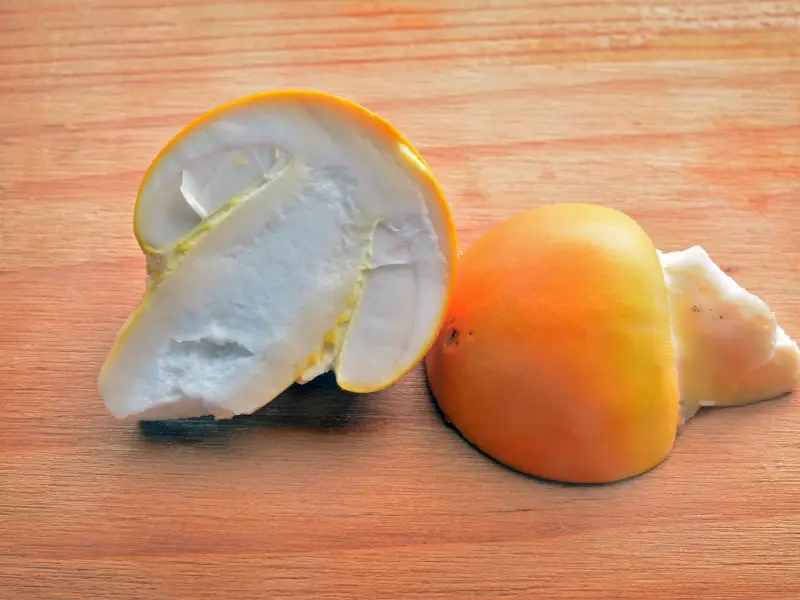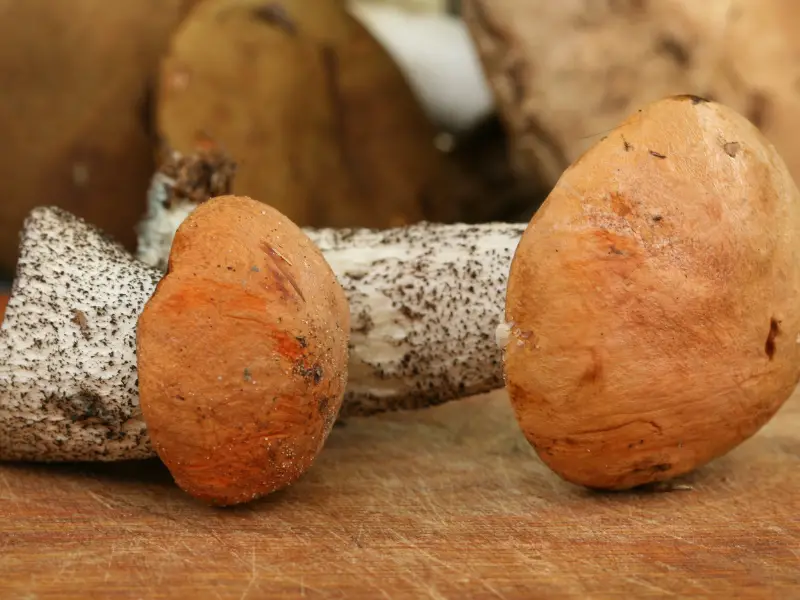Rabbits are adorable and beloved pets that require a balanced diet to thrive. While hay, fresh vegetables, and fruits are staple foods for rabbits, some pet owners may wonder if they can feed their furry friends mushrooms. Mushrooms are a type of fungus that comes in various shapes, sizes, and colors. They are a popular ingredient in many human meals, but can rabbits eat mushrooms?
The answer to whether rabbits can eat mushrooms is not straightforward. Some types of mushrooms are safe for rabbits to eat, while others can be toxic and even deadly. It is crucial for pet owners to know which types of mushrooms are safe for their rabbits and which ones to avoid.
Additionally, feeding rabbits too many mushrooms can upset their digestive system and cause health problems. In this article, we will explore the topic of whether rabbits can eat mushrooms and provide information on the types of mushrooms that are safe for them to consume.
Why are mushrooms bad for rabbits?
Mushrooms are not a recommended food for rabbits. While some types of mushrooms are safe for human consumption, they can be toxic to rabbits and cause serious health problems.
The main reason why mushrooms are bad for rabbits is that they contain toxins that can harm their digestive system. These toxins can cause gastrointestinal problems, liver damage, and even death. Additionally, mushrooms have a high water content, which can lead to diarrhea and dehydration in rabbits.
Another issue with mushrooms is that they can be difficult to digest for rabbits. Rabbits have a delicate digestive system that is designed to process fibrous foods like hay and grass. Mushrooms are not a natural part of their diet and can cause digestive upset and discomfort.
It’s important to note that not all mushrooms are toxic to rabbits, but it’s difficult to determine which ones are safe and which ones are not. As a general rule, it’s best to avoid feeding mushrooms to rabbits altogether to prevent any potential health problems.
In conclusion, mushrooms are not a recommended food for rabbits due to their potential toxicity and difficulty to digest. Rabbits should stick to a diet of hay, fresh vegetables, and a small amount of pellets to ensure optimal health and well-being.
Risks of Feeding Mushrooms to Rabbits

Feeding mushrooms to rabbits can be risky. While some mushrooms are safe for rabbits to eat, others can be toxic and cause serious health problems. It is important to know which types of mushrooms are safe for rabbits and which should be avoided.
Some mushrooms contain toxins that can cause liver damage, seizures, and even death in rabbits. These toxins are not always present in the mushroom’s fruiting body, which is the part of the mushroom that is commonly eaten. Instead, they may be found in the mushroom’s mycelia, which are the thread-like structures that grow underground.
It is difficult to know which mushrooms are safe for rabbits to eat, as even edible mushrooms can vary in their toxin content depending on where and how they are grown. For this reason, it is recommended that rabbits are not fed mushrooms at all.
If a rabbit does eat mushrooms, it may exhibit symptoms such as vomiting, diarrhea, lethargy, and loss of appetite. In severe cases, they may experience seizures, liver failure, and even death.
In summary, feeding mushrooms to rabbits can be risky and should be avoided. While some mushrooms may be safe for rabbits to eat, it is difficult to know which ones are safe and which ones are not. If a rabbit does accidentally consume mushrooms, it is important to seek veterinary care immediately.
What to do if your rabbit ate mushrooms?
If your rabbit accidentally ate mushrooms, it is essential to monitor them closely for any signs of illness. Some types of mushrooms can be toxic to rabbits, and symptoms may not appear for several hours or even days after ingestion.
Here are some steps to take if you suspect your rabbit has eaten mushrooms:
- Remove any remaining mushrooms: If there are any mushrooms left, remove them immediately to prevent further ingestion.
- Observe your rabbit: Keep a close eye on your rabbit for any signs of illness such as vomiting, diarrhea, lethargy, loss of appetite, or difficulty breathing. If you notice any of these symptoms, contact your veterinarian immediately.
- Call your veterinarian: If you suspect your rabbit has ingested toxic mushrooms, call your veterinarian right away. They may advise you to bring your rabbit in for treatment or to monitor it closely at home.
- Provide supportive care: Your veterinarian may recommend providing supportive care such as fluid therapy, electrolyte replacement, or medication to help manage symptoms.
It is essential to remember that prevention is the best way to keep your rabbit safe from toxic mushrooms. Always supervise your rabbits when they are outside and remove any mushrooms or other toxic plants from their environment.
Other Food Alternatives for Mushrooms
While mushrooms are safe for rabbits to consume in moderation, some rabbit owners prefer to avoid them altogether due to potential digestive issues. Fortunately, there are plenty of other food alternatives that can provide similar nutritional benefits.
Here are a few options to consider:
Leafy Greens
Leafy greens are a staple in a rabbit’s diet and are an excellent source of vitamins and minerals. Some great options include:
- Arugula
- Bok choy
- Cilantro
- Dandelion greens
- Endive
- Kale
- Parsley
- Romaine lettuce
- Spinach
Vegetables
Vegetables are another essential component of a rabbit’s diet, and there are plenty to choose from. Some good options include:
- Bell peppers
- Broccoli
- Brussels sprouts
- Carrots
- Cauliflower
- Celery
- Cucumber
- Radicchio
- Radish
Fruits
While fruits should be given in moderation due to their high sugar content, they can be a tasty treat for rabbits. Some safe options include:
- Apple (without seeds)
- Banana (in small amounts)
- Blueberries
- Mango
- Papaya
- Pineapple
- Raspberry
- Strawberry
Herbs
Herbs can be a great addition to a rabbit’s diet and can provide some added health benefits. Some good options include:
- Basil
- Chamomile
- Cilantro
- Dill
- Lavender
- Mint
- Oregano
- Rosemary
- Thyme
It’s important to remember to introduce new foods slowly and in small amounts to avoid any digestive issues. Additionally, always consult with a veterinarian before making any significant changes to your rabbit’s diet.
Conclusion
In conclusion, while mushrooms are not toxic to rabbits, it is not recommended to feed them to your furry friend. Rabbits are strict herbivores, and their digestive system is not designed to process fungi. Mushrooms are high in protein and fiber, which can cause digestive upset, leading to diarrhea, bloating, and even death in severe cases.
Furthermore, some mushrooms are toxic to rabbits, and it can be challenging to distinguish between safe and poisonous types. It is not worth the risk to experiment with different mushroom varieties, as the consequences can be fatal.
Therefore, it is best to stick to a balanced diet of hay, fresh vegetables, and limited amounts of fruit for your rabbit. If you suspect your rabbit has ingested mushrooms, it is essential to seek veterinary care immediately.
Related Articles:

